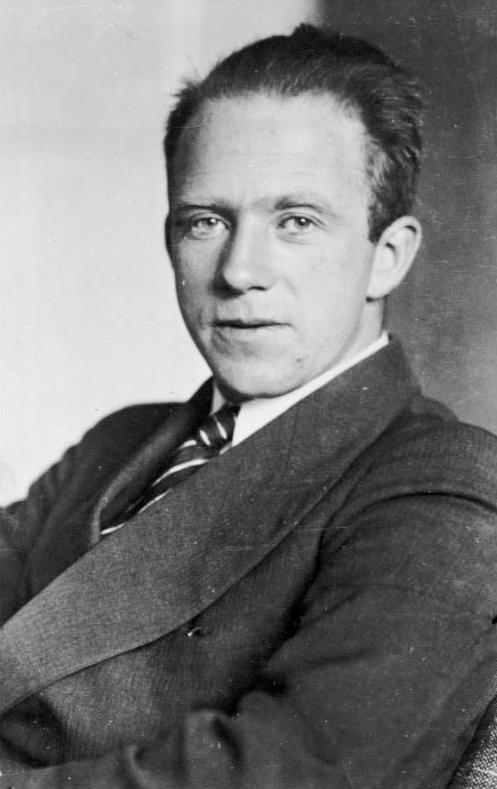Frases célebres de Werner Heisenberg
“En la naturaleza la mejor política es ser lo más conservador posible.”
Fuente: [Albaigès Olivart] (1997), p. 108.
Fuente: revista "MI"
Werner Heisenberg: Frases en inglés
Das Naturgesetz und die Struktur der Materie (1967), as translated in Natural Law and the Structure of Matter (1981), p. 34
Physics and Beyond : Encounters and Conversation (1971)
Physics and Philosophy (1958)
But generally the positivistic scheme taken from mathematical logic is too narrow in a description of nature which necessarily uses words and concepts that are only vaguely defined.
Physics and Philosophy (1958)
Initial statement of the Uncertainty principle in "Über den anschaulichen Inhalt der quantentheoretischen Kinematik und Mechanik" in Zeitschrift für Physik, 43 (1927)
Variant translation: The more precisely the position is determined, the less precisely the momentum is known in this instant, and vice versa.
As quoted in "The Uncertainty Principle" at the American Institute of Physics http://www.aip.org/history/heisenberg/p08.htm
On conversations with Rabindranath Tagore, as quoted in Uncommon Wisdom: Conversations With Remarkable People (1988) by Fritjof Capra, who states that after these "He began to see that the recognition of relativity, interconnectedness, and impermanence as fundamental aspects of physical reality, which had been so difficult for himself and his fellow physicists, was the very basis of the Indian spiritual traditions."
As quoted in Pride of India (2006) by Samskrita Bharati. p. 56
Variante: After the conversations about Indian philosophy, some of the ideas of Quantum Physics that had seemed so crazy suddenly made much more sense.
"Critique of the Physical Concepts of the Corpuscular Theory" in The Physical Principles of the Quantum Theory (1930) as translated by Carl Eckhart and Frank C. Hoyt, p. 20; also in "The Uncertainty Principle" in The World of Mathematics : A Small Library of the Literature of Mathematics (1956) by James Roy Newman, p. 1051
As quoted in Physics from Wholeness : Dynamical Totality as a Conceptual Foundation for Physical Theories (2005) by Barbara Piechocinska.
p, 125
Physics and Philosophy (1958)
“Reality is in the observations, not in the electron.”
A summary of Heisenberg's view by Paul Davies in his introduction to Physics and Philosophy
Misattributed
A widely quoted statement by the character Walter White (a.k.a. "Heisenberg"), in the Cornered episode of Breaking Bad (21 August 2011), which people not familiar with the show might conceivably mistake for an attribution to the scientist.
Misattributed
Quoted from F. Capra, The Tao of Physics.
